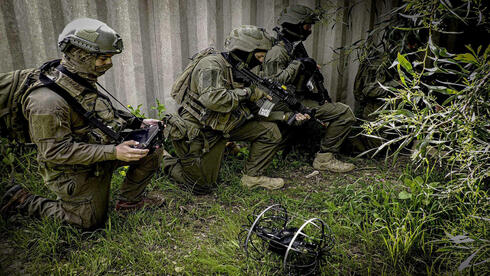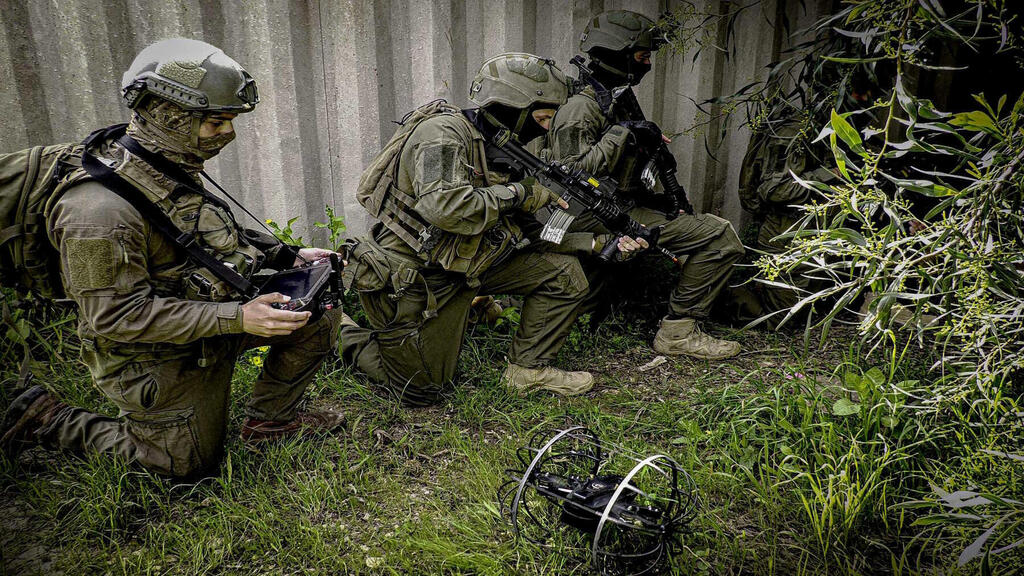
The startups arming the IDF: Inside Israel’s wartime tech boom
With defense contracts soaring, startups are proving their value on the battlefield—securing global interest in their solutions. In 2024, around 300 security startups secured over $330 million in Ministry of Defense contracts.
During 2024, approximately 300 security startups received orders totaling NIS 1.2 billion ($331.5 million) from the Ministry of Defense as part of attempts to procure urgent technological solutions for the operational needs of IDF units during the war in Gaza and Lebanon. Most of the orders, totaling over NIS 320 million ($88.4 million), were directed to approximately 35 startups whose activities focus on developing technologies for autonomous vehicles. Over NIS 300 million ($82.9 million) were transferred to 18 companies in the cyber field, approximately NIS 240 million ($66.3 million) to companies that develop sensors and detectors, and approximately NIS 135 million ($37.3 million) financed orders from 35 companies operating in the fields of digital and artificial intelligence.
The Hamas attack on the morning of October 7 began with the systematic destruction of the technological defense systems that the IDF had deployed along the perimeter fence in Gaza. This included disabling cameras aimed at the Strip, as well as remotely controlled firing systems, and paralyzing capabilities designed to stream data in real-time from the field to commanders in nearby bases. Even after the painful exposure of the vulnerabilities of technologies in combat zones, it is clear that the IDF and the defense establishment continue to bet on the technological horse. Since the beginning of 2023 and deep into the war, the Directorate of Defense Research & Development (DDR&D) has increased its engagements with security startups by 72% in the search for quick solutions to a variety of problems and needs that have emerged from the field. These range from specialized systems for quickly sealing tunnel shafts as an interim solution to their controlled destruction, to robots with offensive capabilities that can scan underground spaces, to tools that combine crawling and gliding capabilities like Robotican's "Rooster." Other innovations include specialized applications that can provide a quick response to soldiers returning from combat and suffering from symptoms of combat stress.
"Civilian technology is accessible to the enemy through simple deliveries that can be made on online shopping sites, greatly accelerating their capabilities against us," Col. Nir Weingold, Head Of Planning, Economics & IT Department at DDR&D, told Calcalist. "The implication of this situation is that we need to get ahead of it—not by one step, but by a kilometer. The challenges are becoming increasingly urgent, and we are in a learning competition on steroids."
The technological race, which is taking place in parallel with a global arms race sparked in early 2022 by the war between Russia and Ukraine, has also prompted the defense establishment’s procurement and development agencies to rethink their engagement models with startups operating in the field. "For years, we became accustomed to working with companies like Elbit Systems, Rafael, and IAI, but here we are facing a different kind of entity, one with a different hourglass," Weingold explains. "There are controlling shareholders, investors, and funds, and everyone wants to see a product, sales, and revenues. This requires us to take a different approach while leveraging the flexibility, agility, and speed with which these companies can operate and develop necessary systems."
The wide range of technologies that startups have deployed in the past year highlights the complexity of war and the differences between the arenas in which the IDF operates. Next-Dim, which developed a system for analyzing trends in networks, received an order worth almost NIS 8 million ($2.2 million). Xmetix developed an automatic tourniquet, Convex specializes in blocking tunnel shafts, and Alumor develops special water purification systems for soldiers, among others.
The prolonged war has provided some of these companies with enough time to refine their solutions, test them in real-world combat situations, and improve them into finished products—receiving the Israeli military's stamp of approval for their battlefield effectiveness. In international markets, this certification is a valuable asset that opens doors and drives deals.
Some of the security startups that entered the war as small companies have matured and grown to the point of being classified as mid-sized enterprises. Five of these companies collectively raised NIS 605 million ($167.2 million) last year and received orders totaling NIS 110 million ($30.4 million), most of them from abroad through government-to-government (G2G) transactions. Among these companies are Odysight.ai, controlled by Mori Arkin, which develops tiny sensors embedded in aircraft to enable constant monitoring and reduce maintenance time by half. Other notable firms include Spear-UAV, which operates in the drone sector, and Smartshooter, founded by Rafael alumni, which develops and manufactures smart fire control systems for small arms.
According to data from DDR&D, 62% of all companies with which the Ministry of Defense contracted in 2024 were at the Seed or pre-Seed stage, about 20% had already raised their first round of capital, 15% had completed their second and third rounds, and another 8% were preparing for an exit or IPO. The data also shows that more than 25 companies moved from the development stage to the production stage during the war or accelerated pre-existing production processes.
Recently, the Director General of the Ministry of Defense, Maj. Gen. (res.) Eyal Zamir, and the head of DDR&D, Danny Gold, launched a new administration for artificial intelligence and autonomous tools. Among its tasks is finding a solution to one of the key challenges the IDF faced during the war: the growing threat of drones and the difficulty in detecting and intercepting them. Alongside the search for new technologies, Israel’s major defense companies are also working on a variety of solutions that are currently being tested by the military.
Over the past year, the defense establishment turned to the civilian market through seven "calls for proposals" seeking technological solutions for additional battlefield challenges. A request for solutions to heat soldiers' tents in winter received 100 proposals, while another call to prevent moisture accumulation on optical and observation systems attracted 10 submissions.
The highest number of proposals—about 400—followed a call issued by the Defense Ministry's Rehabilitation Division focused on mental health, particularly post-traumatic stress disorder (PTSD), given the significant number of combat-related psychological casualties. Several additional calls remain open, targeting head injury detection among combatants, maritime security challenges, and advancements in biological defense technologies.
"The war was a test case for the integration of open innovation in the defense system and served as a driving force for the Ministry of Defense’s contracts with these companies, despite the broader economic slowdown in the industry throughout the year," says Weingold.
Despite the relative calm following ceasefires in the south and north, and a decrease in operational tensions, Weingold notes that startup enthusiasm for defense innovation remains strong. "Our enemies are not disappearing. They are waiting for the next opportunity to challenge us. I am convinced that entrepreneurs and startups who have returned from the front lines—having witnessed operational gaps firsthand—will be highly motivated to close them. This trend will persist, particularly against the backdrop of global demand stemming from multiple conflict zones."















